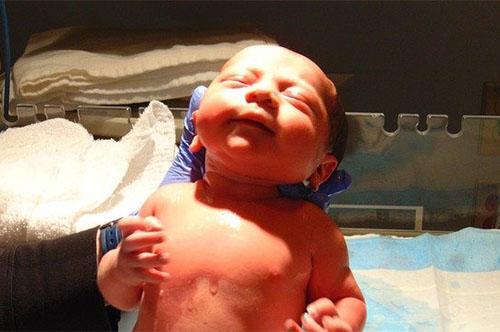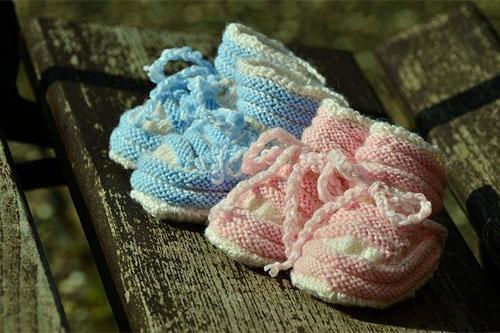A midwife’s mission to bring dignity to pregnant migrant women
‘Treat others as you would like to be treated.’
A simple message relayed to Dr Melanie Cooper in her youth by her late grandfather, Eric Blythe. The sentiment behind his words has guided her career and underpins one of her current research projects, which aims to cut deaths and serious illness among pregnant migrant women from conditions including sepsis and diabetes.
During her career as a midwife, Dr Cooper, admits she has lost count of the number of babies she has birthed adding: “Sometimes, it was a struggle to get around Morrisons without bumping into someone I’ve birthed a baby for.”
Her path to becoming a midwife was far from straightforward. She describes her childhood as “difficult”, citing her grandparents (her grandmother, Jane, was a nurse), as inspirations. At school, she dreamed of becoming a doctor but says: “At the time, I didn’t think I was bright enough.”
Needless to say, she has since proved herself wrong, not least while taking part in ‘ward rounds’ as a student nurse and realising she could answer more questions than some of the trainee doctors. It was a turning point in her career and one which gave her “a steely determination.”
Born and brought up in Wakefield, she left high school at 16 and did a pre-nursing course at the local college which included placements in physiotherapy, a hospital for children with special needs and a day care centre for the elderly. She then went into nursing and spent three years at Addenbrooke's Hospital, Cambridge doing the traditional nursing training before moving north to become a staff nurse at St James’s Hospital, Leeds.
Switching to midwifery
Mel quickly switched to midwifery after an “amazing” placement on the maternity ward. “I just thought it was fantastic and that was what I wanted to do.” She undertook her midwifery training in Bradford and has worked there ever since. It was in her first role as a staff midwife that she decided to boost her academic credentials and so she approached Leeds Metropolitan University (now Leeds Beckett University) about the possibility of topping up her diploma (from her midwifery training) to a degree, a first for both her and the institution.
So began an arduous journey which saw her juggling extremely long hours including on calls as a team midwife at work while pursuing her studies.
“The hospital had a cut-off point of midnight for its on-call system,” she explains. “So if you got called out and got to bed before midnight, you had to work the next day. If you got to bed after midnight, you got the next day off. So, the worst-case scenario was on a Friday, I would set off at 8am to go to university, then start work at 5pm, (because there was a woman in labour) but I got to bed before midnight, which meant I had to sleep at the hospital (because I lived so far away), then I would have to get up and work a full day. It meant I could be out from 8am Friday morning until 6pm Saturday, so I could complete the degree. It also meant I had to keep an awful lot of things in the car, from clothes to food.”

After finishing her degree in 1997, she began a master’s degree, by which time she was also working as a lecturer in professional education. In 2000, she found out she was pregnant but continued to study, handing in her dissertation just two days before her daughter (now 20) was born. When her daughter was a baby, it was easy to settle her by typing on a keyboard as she was well used to the sound of this from her days inside the womb. Dr Cooper went on to have a son (now 17) and worked part time, starting her PhD when he was three.
“At the time, I worked Tuesdays, Wednesdays and Thursday and my son went to nursery so on Mondays and Fridays, I got two hours to work on my PhD. When he moved to primary school, I would work on it during the school day on a Monday and Friday. Five years later, I finally became a doctor, although not the sort I initially imagined.”

A passion for the vulnerable
Dr Cooper has worked at the University for 23 years. She gained her PhD in 2011, was promoted to director of postgraduate research in 2014, became a senior lecturer in 2015 and a reader in 2019. Now her focus is on improving the lives of migrants, asylum seekers and those of black, Asian, minority and ethnic backgrounds.
“I came across an article in 2006 about how pregnant asylum seekers and refugees had a very poor experience during pregnancy. They experienced racism, discrimination, they were more likely to die in childbirth. I felt like I needed to do something about it.”
Her PhD focused on how to better prepare and train midwifery staff to deal with those at risk groups and now she is focusing her research to offer help during the current Covid-19 crisis. Her current research is in the same vein and one project has the potential to reshape the way health services deal with pregnant migrant women.
“Pioneering two-minute DAISI phone app animation could save lives.”
The sepsis DAISI (Digital Animation In Service Improvement) project aims to educate pregnant women about the dangers of postnatal sepsis, which occurs when the body overreacts to an infection. According to the World Health Organisation, globally, there are over 800 preventable deaths every day related to pregnancy and childbirth, with sepsis (most commonly postpartum) being one of the leading causes, accounting for over 10 per cent of deaths. For every death, thousands of women experience severe morbidity. In the UK, more than 60 women die each year due to childbirth, half of which occur in the postnatal period, with higher rates in women from black, Asian and minority ethnic (BAME) groups who may speak limited English.
The sepsis DAISI, which completed its first trial in 2018, comprises a short animation explaining the symptoms of sepsis, how to prevent it and what to do if you get it. It was praised by the majority of women and midwives who took part in the study and has secured funding to introduce the sepsis DAISI into the NHS. Dr Cooper believes it could have much broader application and the next DAISI being developed is a diabetes DAISI to use with pregnant women.
She adds: “If you are a migrant with no money, in accommodation where you don’t know where you are, housed with other people who speak a different language and you have no idea where who to go to for help, it has an effect on you. I regularly see malnourished pregnant women. We help put them in touch with the voluntary sector and offer other support. In the end, it’s about treating people with dignity.”
About Dr Melanie Cooper
Dr Cooper established the Northern Maternity Stream research network to develop collaborative research projects to support migrant women across the North of England, working with European partners and experts by experience.
